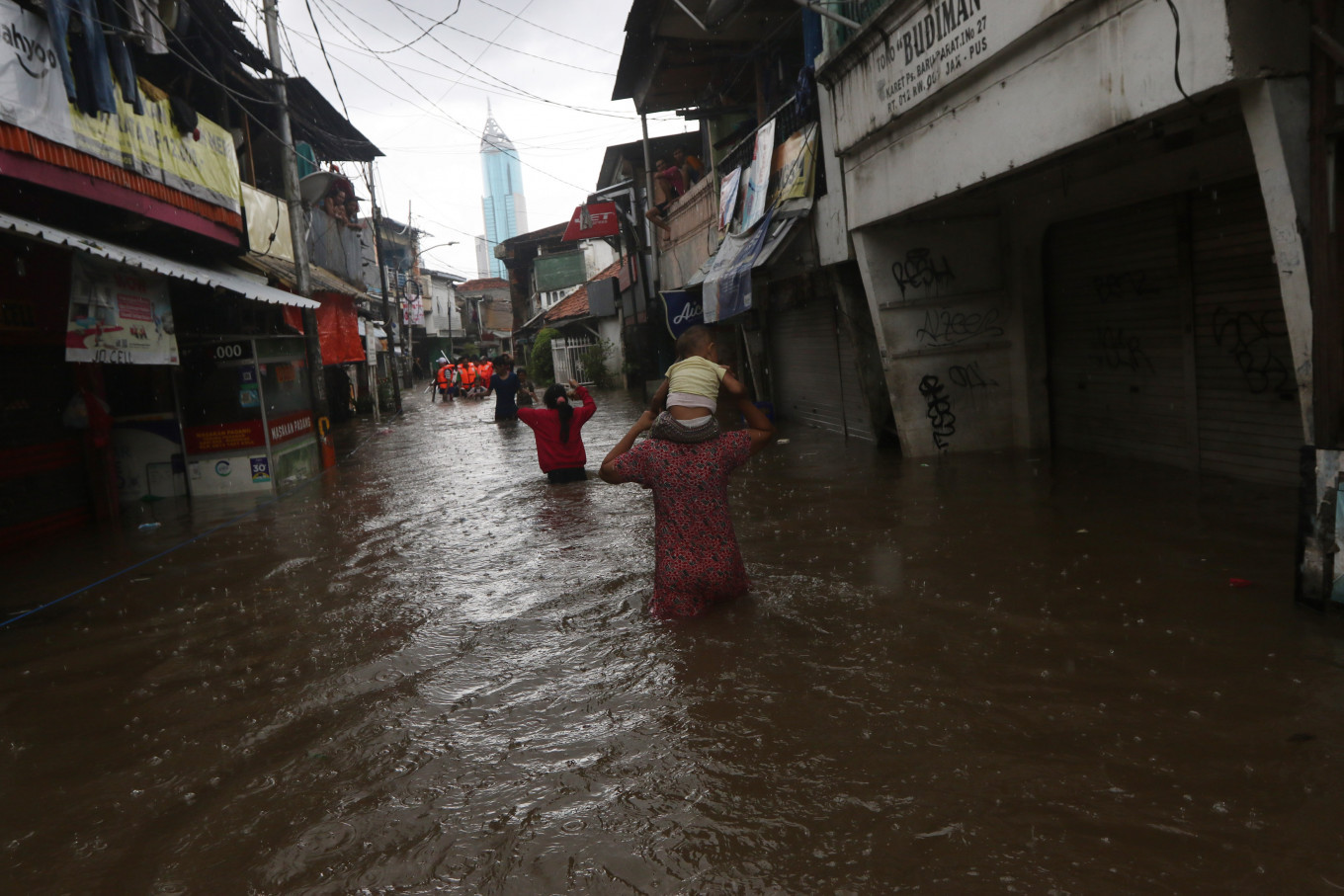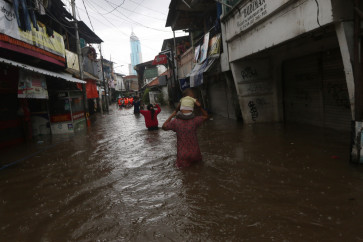Popular Reads
Top Results
Can't find what you're looking for?
View all search resultsPopular Reads
Top Results
Can't find what you're looking for?
View all search resultsClimate disaster and land-use change: Reversing insurance business logic
This is a climate disaster, not just natural and common one, and is the fruit of a prolonged process of structural and cultural activities. In oceanologist Wally Broecker’s words, humans are creating a “war machine” that is increasingly detrimental from day to day.
Change text size
Gift Premium Articles
to Anyone
O
ver the last few months, we have seen news spreading of natural disasters in both Indonesia and other regions of the planet. Two major countries, the United States and Australia, not only have been hit by fierce storms but also have seen widespread forest fires as a result of the worst-ever heat waves in their histories.
Indonesia itself has seen more floods and landslides happening in shorter cycles. The Meteorology, Climatology and Geophysics Agency has statistically analyzed risk changes and chances of rainfall for a period of 150 years. The result shows that Jakarta will see an increase in rainfall of 23 percent. In the past, extreme rainfall used to happen within a period of 10 to 20 years, but it now comes in shorter intervals. The temperature in Indonesia in the last 30 years has also increased by 0.1 to 1 degree Celsius.
In his The Uninhabitable Earth: Life After Warming, David Wallace-Wells noted that an increase of 1 degree Celsius in temperature would cost temperate countries like the US about 1 percent of their gross domestic product. With a 3.7 degree increase, the loss might cost US$551 trillion, far exceeding the total wealth of the world at around $280 trillion. Imagine an increase of 4 degrees! This climate disruption impacts the macro and global economy, not only human lives and local economic traditions. Not only does it undermine economic growth but it is also likely to push the economic curve into extinction.
This is a climate disaster, not just natural and common one, and is the fruit of a prolonged process of structural and cultural activities. In oceanologist Wally Broecker’s words, humans are creating a “war machine” that is increasingly detrimental from day to day.
Professor Peter Hope of Munich Re, an insurance giant with a comprehensive database of natural disasters across the globe, observed that storms and floods have tripled since 1980. These disasters have caused disruption to the global food market in the last five years. Munich Re had to pay $224 billion of insurance claims after earthquakes and tsunamis hit Japan in 2011. Similarly, Allianz had to pay $843 billion of claims that drastically cut its profit by 44 percent.
America’s insurance companies paid a total of $130 billion of insurance claims following three consecutive big hurricanes in 2005: Katrina, Rita and Wilma. In addition, the December 2018 hailstorm in Sydney, although only lasting for a day, cost Australia’s insurance companies A$412.5 million from 25,000 claims.
The Insurance Council of Australia (ICA) said that the hailstorm was the fifth disaster to hit the country in 2018. Previously in March that year, forest fires broke out in New South Wales and Victoria, resulting in insurance claims of $82.5 million. A storm in Queensland as well as another storm and a flood in Hobart led to insurance claims standing at $62 million and $99.6 million, respectively. The amount will get much higher if we also include claims over forest fires that were raging in Australia until early 2020.


















